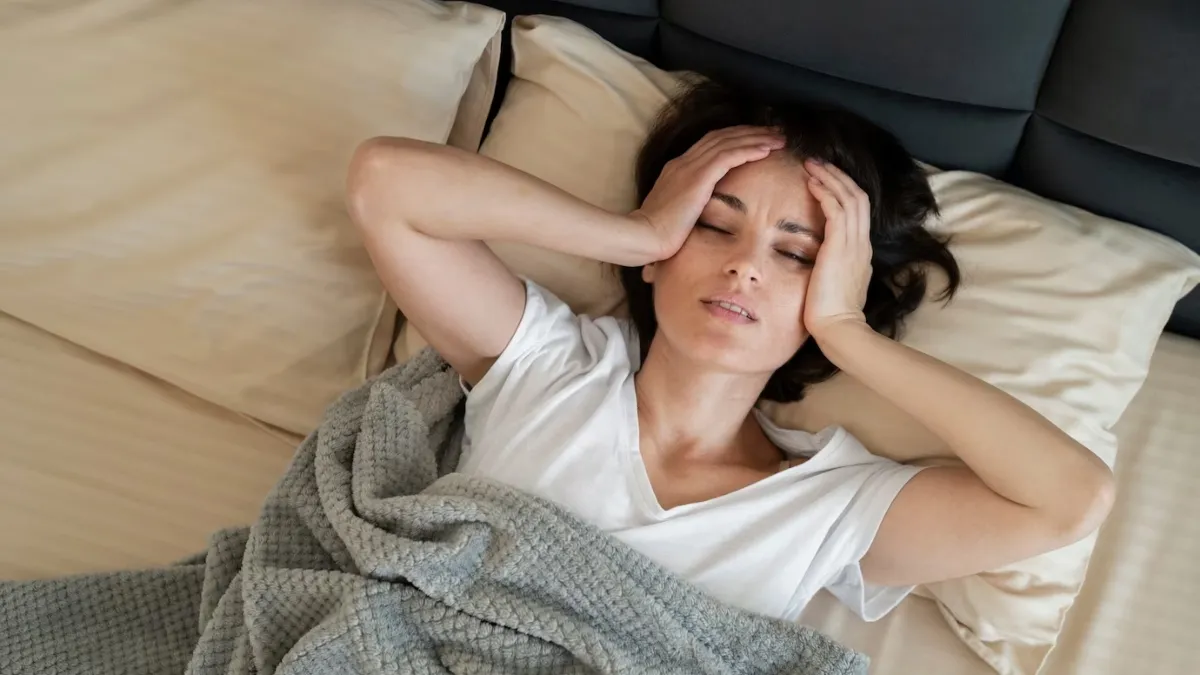Sleep apnea, migraine, and lack of sleep are common causes of morning headaches. Alcohol use and certain medications can also cause to wake up with headache. Sometimes morning headaches come from a combination of disorders or habits. As you transition from sleep to wakefulness, parts of your brain start to “wake up” too. When we spoke to Dr G.V. Subbaiah Chowdhary, Sr Consultant Neurologist, Yashoda Hospitals, HITEC City, he said that our brain becomes more responsive to changes in our body position, touch, and sound. During this period of heightened sensitivity, you may be more susceptible to pain.
Additionally, the hypothalamus in the brain is involved in both sleep and pain processes. The hypothalamus regulates your natural circadian rhythms and sleep cycles and modulates sensation and pain. Disturbances in the hypothalamus during sleep affect your ability to tolerate pain. As a result, you may not have felt pain when you slept and you may feel it in the morning.
Chronic morning headaches usually are either migraine or tension headaches. A migraine often feels like piercing pain in one location along with symptoms such as sensitivity to light or nausea. Tension headaches tend to cause pressure all around the head.
Individuals with depression and/or anxiety are more likely to experience tension headaches. Migraines also are connected to mental health issues because they can lead to fatigue which makes life challenging.
Insomnia and headaches are linked together as well. Poor sleep quality can cause headaches, and improved sleep quality can help relieve them.
Oversleeping or sleeping too much can also affect your morning headaches. Both low-quality sleep and longer sleep are associated with more intense headaches.
People with obstructive sleep apnea (OSA) experience disrupted or stopped breathing during sleep. OSA affects between 2% and 9% of adults. Morning headaches are a common symptom of OSA. In one study of people with OSA, 29% reported suffering from morning headaches.
Heavy drinking of at least six drinks in an evening has a high association with morning headaches. However, even at lower levels, alcohol affects sleep and can lead to morning headaches for several reasons. Alcohol also increases urination and loss of fluids, leading to mild dehydration. Headaches are a common side effect of dehydration. Additionally, alcohol can be a trigger for migraines.
Taking over-the-counter pain medication too often or too long also can cause morning headaches because the body goes through withdrawal overnight. To avoid this, over-the-counter pain relievers should be used no more than 10 days a month or a couple of times a week.
Hypnic headaches are a rare type of headache that occurs during sleep and wakes the person up, which is why they’ve earned the nickname “alarm-clock headaches“. The pain can keep people up for at least 15 minutes, if not longer. A hypnic headache wakes you up, typically in the middle of the night.
If you have frequent or daily morning headaches:
Talk to your doctor about what might be causing them. Keeping a sleep diary to track your symptoms and sleep habits to identify the exact trigger or triggers of your morning headaches and develop a treatment plan. In addition to treatment specific to your trigger, you can also improve your sleep hygiene.
- Keep a Consistent Sleep Schedule: Go to bed and wake up at the same time each day.
- Exercise Regularly: Try to exercise at least several hours before bedtime. Avoid Exercising too close to your bedtime.
- Limit Caffeine and Alcohol: An afternoon coffee or a glass of alcohol just before bedtime can keep you up late or disrupt your sleep.
- Adjust Your Sleep Environment: You need a space that’s dark, cool, and with little noise. Limit the use of your bed to only sex and sleep.
- Find a Relaxing Routine: Try a soothing bath, reading, or meditation.
With good sleep hygiene and treatment for the disorder causing your headaches, you may be able to reduce or eliminate your morning headaches.
ALSO READ: Why so many fit people are dying due to heart attacks? Experts explain the reason

